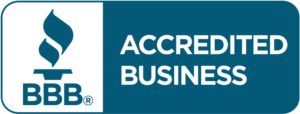Many people worry about the effects declaring bankruptcy will have on their credit scores. Although it is true that a bankruptcy will have an effect on a person’s credit report, there are several ways that people can rebuild their credit score after bankruptcy. People who declare bankruptcy should take proactive steps to rebuild their credit scores after bankruptcy to ensure a bright financial future.
Pay bills on time
Payment history makes up the largest part of a person’s credit score. People looking to rebuild their credit scores can benefit from reviewing their expenses and cutting down when possible so that they are able to pay every remaining bill on time. It can be a good idea to set up auto-pay for recurring payments to avoid worrying about accidentally missing a payment. Keeping up with installment payments in particular, such as car or mortgage payments, can have a positive impact on a person’s perceived level of financial responsibility and creditworthiness, even after bankruptcy. It is also important to pay rent on time, as the credit bureau Experian is now tracking rent payments.
If debtors cannot pay every bill that is due, then they should prioritize the ones necessary for survival. Focus on paying bills for food, housing and utilities.
Have an emergency fund available
In addition to paying your bills on time, it is a good idea to start putting small amounts of money into a savings account that is to be used in emergencies if at all possible. An emergency fund is critical to dealing with future emergencies or unexpected events. No one is free from the risks of unpredictable illness, injury or natural disasters, to name a few.
Apply for secured credit cards or credit loans
To help improve credit scores after bankruptcy, consider applying for new sources of credit. A secured credit card or loan means debtors deposit some money in the bank, and the bank gives a credit limit equaling that amount in case debtors cannot pay off their balances. For example, if a debtor gives the bank $400, then he or she gets a credit limit of $400 on a secured credit card. Make sure the secured card you choose reports every month to all of the three credit bureaus, which are Experian, Equifax and TransUnion, because some companies offering secured credit cards don’t.
Monitor credit reports
Finally, people should regularly monitor their credit reports from all of the three credit bureaus for outdated personal information, incorrect credit history or errors in presently active accounts. All debts that were discharged as a part of a bankruptcy need to be reflected in these reports. Contest any negative information on reports from a company that is no longer existent. All information on a credit report must be verifiable – if the company is no longer in business, the information from such a company may not be verifiable, so it must be removed from a credit report. Bureaus are required to respond or remove contested information within 30 days from a request.
Bankruptcy is not the end of a person’s life, but the beginning of a fresh start financially. Bankruptcy is an important tool for debt relief that can help a person find relief from credit card debt, loan payments and can even be a way to avoid a foreclosure. A bankruptcy petition also provides immediate relief in the form of an automatic stay, which will prevent creditors from attempting to collect on unpaid debts. If you are contemplating filing for bankruptcy, contact a local bankruptcy attorney who can help you get out of financial distress and obtain a fresh start on life.



Better Business Bureau
Bankruptcy Practice Spotlight
If you are facing a possible foreclosure, I can take my two-plus decades of experience to help you save your house.

I understand how stressful the prospect of losing a house can be and am committed to working one-on- one with you to understand all details involved in your financial situation.

